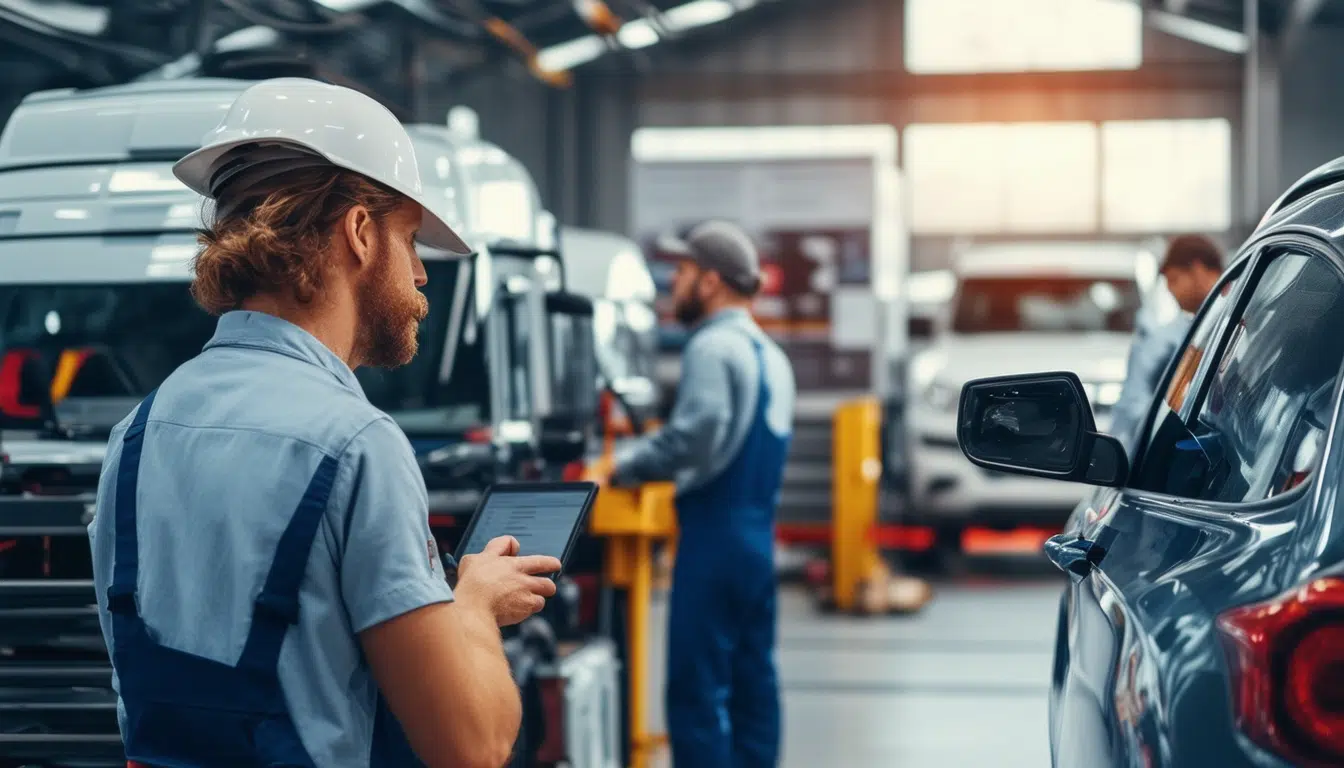Los beneficios del mantenimiento proactivo en el contexto del ahorro de combustible

Proactive maintenance has become an essential strategy for optimizing the efficiency and sustainability of vehicle usage. By implementing a preventive maintenance program, companies can enjoy a series of significant benefits, among which the reduction of fuel consumption stands out. This practice not only helps prevent catastrophic failures and maximizes the lifespan of equipment, but also translates into economic savings and a smaller environmental footprint. The importance of this approach lies in its ability to improve the reliability and performance of vehicles, which is crucial in a world that is increasingly seeking energy efficiency.
Proactive maintenance has become fundamental for companies seeking to optimize the performance of their fleet and reduce fuel consumption. Implementing a regular maintenance program not only improves operational efficiency but also generates significant economic savings. This article will explore the main advantages of proactive maintenance specifically aimed at fuel savings.
Significant savings in fuel consumption
One of the most noteworthy benefits of proactive maintenance is the significant savings on fuel that can be achieved. By conducting regular inspections and adjustments on vehicles, their systems are optimized, which results in more efficient operation. A well-maintained car consumes less fuel and, as a result, reduces operational costs in the fleet.
Prevention of catastrophic failures
Preventive maintenance helps avoid catastrophic failures in vehicles. These failures not only incur high repair costs but can also cause unexpected downtime. Therefore, a proactive maintenance program helps maximize operational time, meaning that vehicles are on the road and not in the shop.
Improvement in engine efficiency
An engine in good condition is essential for fuel performance. Regular maintenance allows for the cleaning and adjustment of engine components, enhancing their efficiency. For example, proper wheel alignment and maintenance of the fuel system are critical aspects that positively impact fuel consumption. A comprehensive guide to understanding these aspects can be found here.
Efficient driving and cost reduction
Proactive maintenance not only focuses on the vehicle itself but also on how it is used. The implementation of efficient driving techniques, combined with proper maintenance, can reduce fuel consumption by up to 15%. This is achieved by avoiding harsh accelerations and sudden braking, promoting a driver that is more conscious of fuel economy.
Better environmental performance
Adopting a proactive approach to vehicle maintenance is not only economically beneficial but also has positive implications for the environment. Lower fuel consumption translates into reduced emissions of pollutants, contributing to a cleaner environment. This proactive approach can be part of a broader environmental strategy within the company.
Impact on vehicle longevity
Regular maintenance not only saves fuel but also extends the lifespan of vehicles. A well-kept vehicle is less likely to suffer premature wear and therefore requires fewer expensive parts replacements. Aspects such as the vehicle’s weight also influence fuel consumption, making proactive maintenance essential for its effectiveness. To learn how this weight affects consumption, you can consult the following link.
Immediate attention to warning signs
Good proactive maintenance allows for the detection and resolution of issues before they become critical situations. For example, if the check engine light is on, addressing it immediately can prevent significant repair expenses, as outlined in the article available here.
Effective strategies for cost reduction
Finally, proactive maintenance ensures that companies use effective strategies to reduce fuel costs. A proactive approach includes regular inspections, engine maintenance, and other systems, as well as the implementation of best practices in driving. More details about these strategies can be found here.
Proactive maintenance has become a key factor for companies looking to optimize their operations and reduce costs. In particular, fuel savings are one of the most significant advantages offered by this approach. Well-maintained and cared-for vehicles are not only safer but also consume less fuel, positively affecting the company’s budget.
One of the main ways in which proactive maintenance contributes to fuel savings is through the prevention of failures. A regular check of the vehicle systems, including the engine, brakes, and fuel system, ensures that everything operates optimally. This minimizes breakdowns and downtime, allowing the vehicle to operate at its maximum efficiency.
Moreover, a preventive maintenance program helps improve the energy efficiency of vehicles. Practices such as proper wheel alignment and periodic checking of filters and oils can significantly influence fuel consumption. In fact, driving a well-maintained vehicle can reduce fuel consumption by up to 15%, which represents considerable savings in the long term.
Additionally, promoting good driving habits, such as avoiding abrupt accelerations and sudden braking, contributes to maximizing the benefits of proactive maintenance. Driving efficiently not only improves safety but also optimizes vehicle performance, resulting in lower fuel consumption.
In conclusion, the benefits of proactive maintenance are evident not only in terms of fuel savings but also in extending the lifespan of vehicles and improving the operational efficiency of companies. Implementing a regular maintenance plan is a smart strategy that can translate into significant savings and a lesser environmental impact.





